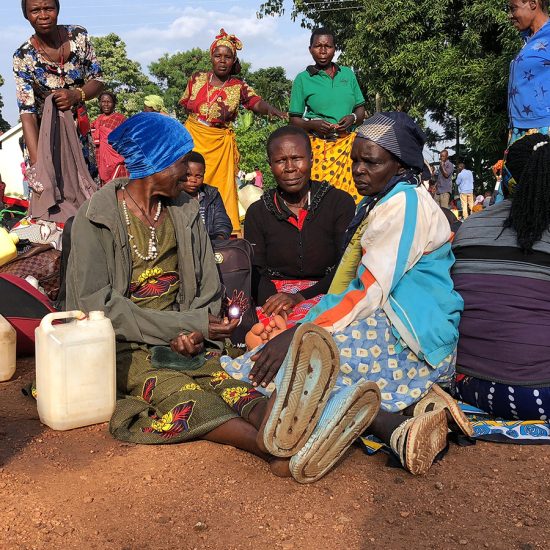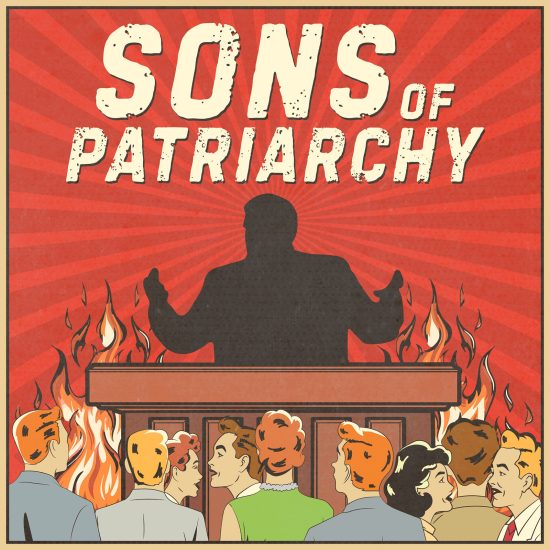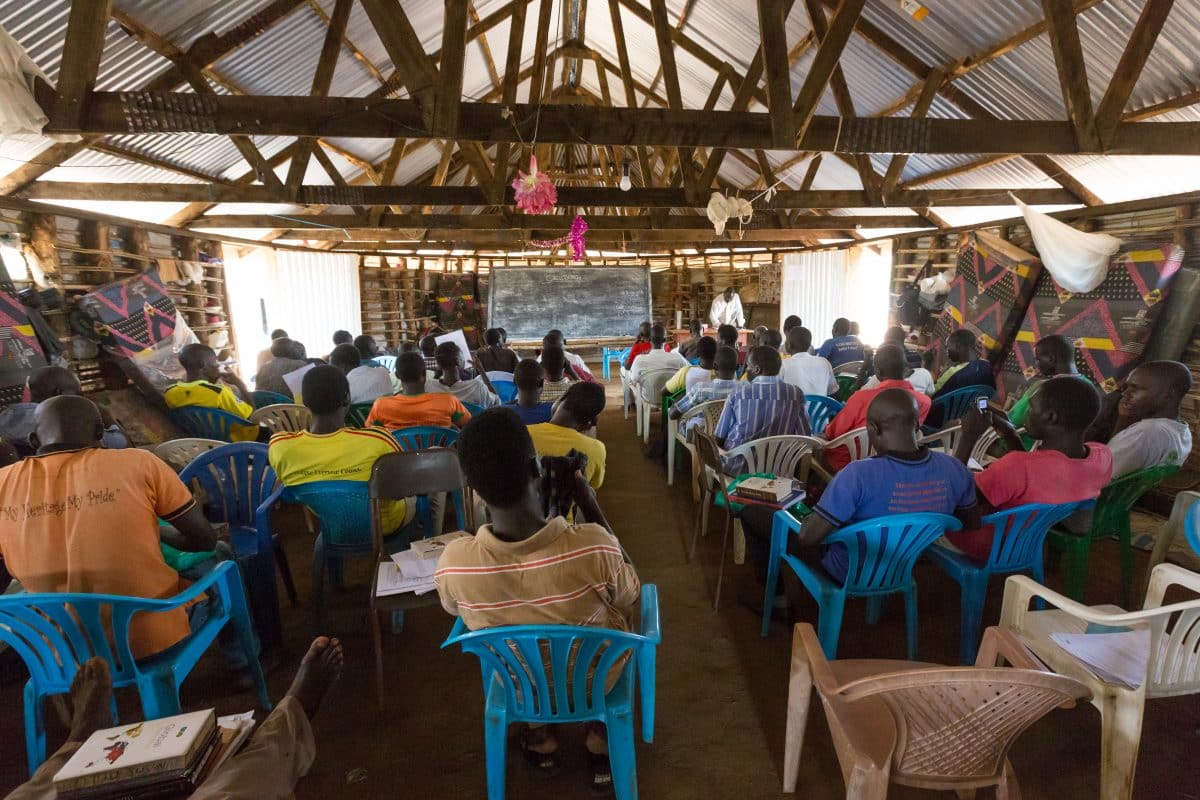
As the coronavirus pandemic sweeps the globe, it adds to the life-and-death challenges of refugees in eastern Africa already threatened by conflict, lack of resources, and perhaps even devastation from billions of locusts. A Baptist pastor ministering in refugee camps in Uganda — himself a refugee from South Sudan — sees the coronavirus outbreak as the latest danger to those he serves.
As of April 14, nearly 2 million people globally have been infected with the COVID-19 respiratory disease caused by coronavirus, and more than 125,000 have died. While there are not many known cases yet in the eastern African nations of South Sudan and Uganda, fears remain that it could prove deadly, especially if it spread into refugee camps. In Uganda, 55 people — or about one per million people in the nation — have tested positive. In South Sudan, the rate is about half that per million, with just four known cases.
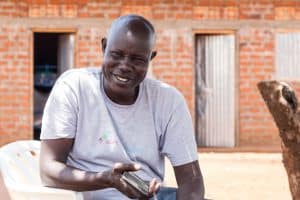
Edward Dima ministers in the Bidibidi Refugee Settlement in northwestern Uganda. (International Mission Board)
Edward Dima, a Baptist pastor from South Sudan who ministers now among his fellow refugees in northern Uganda, told Word&Way that even though coronavirus hasn’t shown up much yet there, he knows it is a “most devastating pestilence.” And it is already impacting people in both countries as churches, businesses, and more shut down in hopes of preventing its spread.
“It has caused a great panic right now in Uganda and South Sudan,” he added. “In Uganda and South Sudan, the COVID-19 pandemic has impacted the economy, lock up of the public transportation, closure of social gatherings, schools and churches close, and curfew imposed from 7:00 p.m. – 6:30 a.m. and anyone found on the street is impounded with the car or motorcycle and person arrested and imprisoned.”
“This is a rule of law to protect the people from COVD-19 pandemic,” he added. “This is a sad situation that had impacted the two countries of Uganda and South Sudan.”
The newest country in the world, South Sudan gained independence from Sudan in 2011 after a referendum showed nearly 99 percent support among South Sudanese people for forming a new nation. The vote emerged out of the peace plan in 2005 that ended the two-decade Second Sudanese Civil War. Unfortunately, peace didn’t last long for the new nation.
After just two-and-a-half years of independence, a civil war erupted in December 2013 amid a power struggle between top political leaders. The conflict, which just ended in February with the formation of a unity government, left nearly 400,000 people dead. Additionally, more than 1.5 million people fled the nation as refugees and more than 2 million others were internally displaced within South Sudan’s borders. With the peace plan so recently implemented, few people have yet returned home.
At the time of the South Sudanese civil war, Dima was pastor of First Baptist Church in Kajo-Keji in the southern part of the country near the Ugandan border. He also served as president of the Baptist Convention of South Sudan. Dima and his congregation immediately ministered to those internally displaced by the conflict, helping feed and even house hundreds of people. He also started ministering in refugees camps for those who fled just across the border to Uganda.
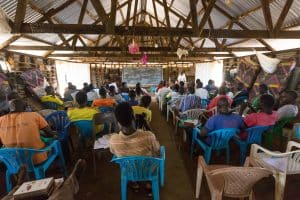
Bible school students meet pre-coronavirus in a Baptist church in the Bidibidi refugee Settlement in northwestern Uganda. Edward Dima started this Bible school. (International Mission Board)
Eventually, Dima also moved in January 2017 to Uganda with his wife and kids, and he continued ministering among his fellow refugees. By that point, most of his congregants who hadn’t been killed in violence or died from starvation were also living in Ugandan refugee camps. More than three years later, he’s still in Uganda, where multiple Baptist churches and schools have been started in refugee camps.
Now adding to the long-term struggles of life in refugee camps, the coronavirus threat is sparking fear and making life more difficult from preventative restrictions. Dima said the “impact is negative” already and they are “praying for God to intervene at this particular time.”
“In the refugee camps in north Uganda [and] western region of Kenya, it is so devastating,” Dima explained. “There is no food distributed to the refugee camp in north Uganda and people would die suddenly. There are no masks, no social distance because of the massive number of refugees in the camp.”
He stressed that people need food. But the business closures, travel restrictions, and curfew could make that more difficult than normal. He added that due to “new measures by the government,” there will be at least another three weeks “before the ban is lifted.”
And on the horizon, another danger could come. Earlier this year, it seemed the biggest threat to eastern Africa would be a massive swarm of desert locust impacting countries like Somalia, Ethiopia, and Kenya that lie just to the east of Uganda and South Sudan. Already the largest outbreak in 70 years, a new wave from another generation is starting that might be 20 times bigger than the swarm earlier this year. Some of the locusts have started spreading into the eastern parts of Uganda and South Sudan.
The swarms can include up to 150 million locusts per square kilometer, and they consume nearly every bit of green vegetation in their paths. Millions in the region are estimated to need emergency food aid already due to the locust damage. And with coronavirus lockdowns in the region, the difficult task of defending gardens and fields is virtually impossible.
Despite it all — despite living as a refugee in another land, despite the threat of coronavirus, despite other dangers to him and his people — Dima keeps ministering and praising God.
“Christ is risen indeed,” he wrote to Word&Way just after Easter. “Hallelujah. Amen.”


